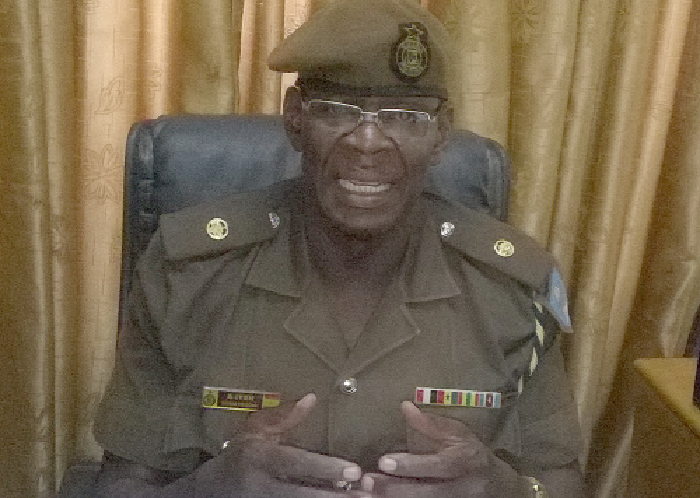
Prisoner education in limbo; No progress for inmates who excel in exams
The fate of inmates at the various prisons who take part in the West African Senior School Certificate Examination (WASSCE) and the National Vocational Training Institute (NVTI) continue to remain in limbo because the law does not guarantee that they could continue to higher education even after passing their examinations.
Advertisement
This means those able to obtain grades good enough to enable them enter the universities or other tertiary institutions are unable to do so.
Under Ghana’s legal regime, a prisoner can only be released from prison in three ways — a successful appeal against their conviction, Presidential pardon or after they have completed serving their term.
Since its inception four years ago, prisoners who enrol on the prison education programme continue to record impressive performances.
However, only a handful are able to go out of the prisons to continue their education after serving their sentences.
Inmates educational records
In 2011, for instance, out of the 15 candidates who sat for the Basic Education Certificate Examination (BECE), two recorded aggregate 20-22, six recorded 23-30 and seven scored 31-36, and the four candidates who sat for the WASSCE in 2011, scored between aggregate 18 and 20.
During the same year, out of the 13 candidates who sat for the NVTI examinations, three recorded distinction, five had credits and five others had a pass.
The statistics also showed that in 2012, out of the 11 candidates who wrote the BECE, one had aggregate nine, eight had aggregates 18-24 while two others had aggregate 26.
In 2013, when the WASSCE and NVTI began, all 11 candidates presented for the NVTI came out successfully in the various professional examinations they wrote.
At the Nsawam Medium Prisons, for instance, 12 female prisoners obtained a 98 per cent pass rate in the NVTI Grade (1) examination in 2014.
In 2015, seven inmates were registered for the WASSCE, and all seven passed, 27 candidates presented for the NVTI were successful, while all 12 candidates who took part in the BECE also passed.
In 2016, eight candidates were presented for the WASSCE and all passed the various examinations. Thirty nine candidates who were presented in the same year to take part in the NVTI all came out with flying colours.
All 14 candidates who wrote the BECE in the same year emerged victorious.
The Chief Public Relations Officer (PRO) of the Ghana Prisons Service (GPS), Superintendent Vitalis Aiyeh, disclosed this in an interview with The Mirror in Accra.
He said in the 2015/2016 WASSCE, for instance, some of the students had A1 in courses such as Financial Accounting, Principles of Cost Accounting and Economics, but only a few had been able to end their sentence and were out while majority still remained in detention.
“It will interest you to know that these inmates take the same exams and marked by the supervising bodies like all other students. But they end up with good results,” he said.
Ghana Prisons intervention
To help build the educational and intellectual capacities of the prisoners while serving their sentences, Mr Aiyeh said the Prisons Service would soon roll out an educational programme to enable inmates to pursue tertiary education while serving their sentences.
He said the service had begun talks with some tertiary institutions, including the University of Ghana, Legon (UG), University of Cape Coast (UCC) and the University of Education, Winneba (UEW), to offer distance education programmes to the inmates.
Test the law
In spite of that, Mr Aiyeh said until the law was tested, the service could not do anything about the situation, noting that it took a citizen to initiate legal actions to give room for prisoners to vote in national elections.
“We are all praying that one day, a law could be passed which will enable inmates who pass their exams to go home. Until that is done, the Prison Service can only abide by the prevailing laws.
“It took the action of one person to challenge the law for inmates to be given the mandate to vote in national elections. So similar action could be taken by citizens to save the future of some of these prisoners,” he told The Mirror.
Challenges
Mr Aiyeh appealed to the government and other stakeholders to help the service to acquire adequate classrooms, furniture and educational materials to enhance teaching and learning at the various prisons.
He said the Centre for National Distance Learning and Opening Schooling (CENDLOS), for instance, was facing financial difficulties and was not able to execute its projects effectively.
“More importantly, centres running practical subjects have virtually come to a halt since they do not get the money to buy the needed materials for their practicals.”
Writer’s email: [email protected]



